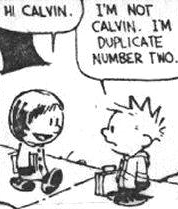
“And even if you found yourself in some prison, whose walls let in none of the world's sounds - wouldn't you still have your childhood, that jewel beyond all price, that treasure house of memories? Turn your attentions to it.”
— Rainer Maria Rilke, Letters to a Young Poet
If I had answered the questions at school, if I had told the truth and been as honest as my heart had wanted, what words would have come from me? Where would I have started? Everything would have begun with Mom.
She grew up on the eastern plains of Colorado, where the final stretch of the Midwest meets the Rocky Mountains. From a dusty bungalow outside Colorado Springs, she knew Pikes Peak, the summit named for Zebulon Pike—the white man who, after seeing it, tried to climb it and failed, then tried again and got lost. Nearly a century later, Katherine Lee Bates, an English teacher from Wellesley College, took a carriage to the top, announced that she had found the Gate of Heaven, and wrote “America the Beautiful” on her way back into town.
My mother’s family came from the “dry land” farms in the shadow of the peak, where survival depended on grudging rain and stubborn wits. The high point of my family’s wealth came when my mother’s grandfather acquired a withered plot, which he passed down to her mother, Katherine Reese. The first woman in family memory to have something more than herself to bring to a marriage, Katherine chose a man who was a generation older than she and who had been gassed as a young soldier in the First World War. He widowed her with their two children: my mother, who had just reached her sixth birthday, and her brother, who was still working toward his third. The local child welfare agency suggested a children’s home. In desperation, Katherine married a second man, who shortly thereafter sold Katherine’s patch of dirt for promised oil royalties. When the payments never arrived, Katherine’s second husband abandoned the family. Katherine had chosen poorly—twice—in a life that offered few accommodations for mistakes. Her daughter and son went in and out of children’s homes while she did her best to keep them for as much of their childhoods as she could.
When my mother, Hope, was sixteen years old, she met Wade—a twenty-one-year-old outsider stationed at one of the several military bases nearby. In Katherine’s words, Wade was an angry man who loved my mother selfishly. Against Katherine’s wishes, my mother dated Wade for nearly a year. She left school in the middle of tenth grade. Then, in a final act of defiance, she married Wade in the town clerk’s office a week after her seventeenth birthday.
Following his discharge, Wade convinced my mother to see what they could of the world in a Chevrolet station wagon. They left Colorado, traveling for months on a grand tour of America’s dust bowl. When they were in Missouri, they called Katherine to announce my arrival, describing me as a blond baby boy who looked more like him than her. They did what they pleased and stayed where they wanted, paying first with the savings that Katherine gave them, then with bad checks. Outside Bakersfield, California, they were arrested for bank fraud. Barely in their twenties, they were sentenced to state prison. I was not quite four years old when I was sent to live with my grandmother, who had moved to Chicago.
Like Katherine before her, Hope had chosen badly. After her release from prison, with me safe in Chicago, my mother settled in Los Angeles, refused to return to my father, and demanded a divorce. On a bench in a public park, Wade agreed to the breakup, but on his terms. If my mother insisted on retrieving me from Katherine, Wade promised a meager monthly stipend for child support. He refused to pay alimony of any kind. There were no assets to divide. Wade declared that their agreement would remain a private one, without the intervention or enforcement authority of a court. If his young wife refused his offer, if she asked for more, if she went to a judge, Wade reminded her that, with or without legal permission, a little boy would never be hard to steal.
From her own mother, my mother knew how easily a woman could lose a child. She accepted Wade’s deal, and in return, he abandoned any claim to me. She kept the boy she loved from the man she despised. Yet even with Wade gone, my mother’s fear of losing me always lingered. “You have to be ready,” she warned. “Someday, someone may come to take you.”
Labels: adoption, What I'm reading
































